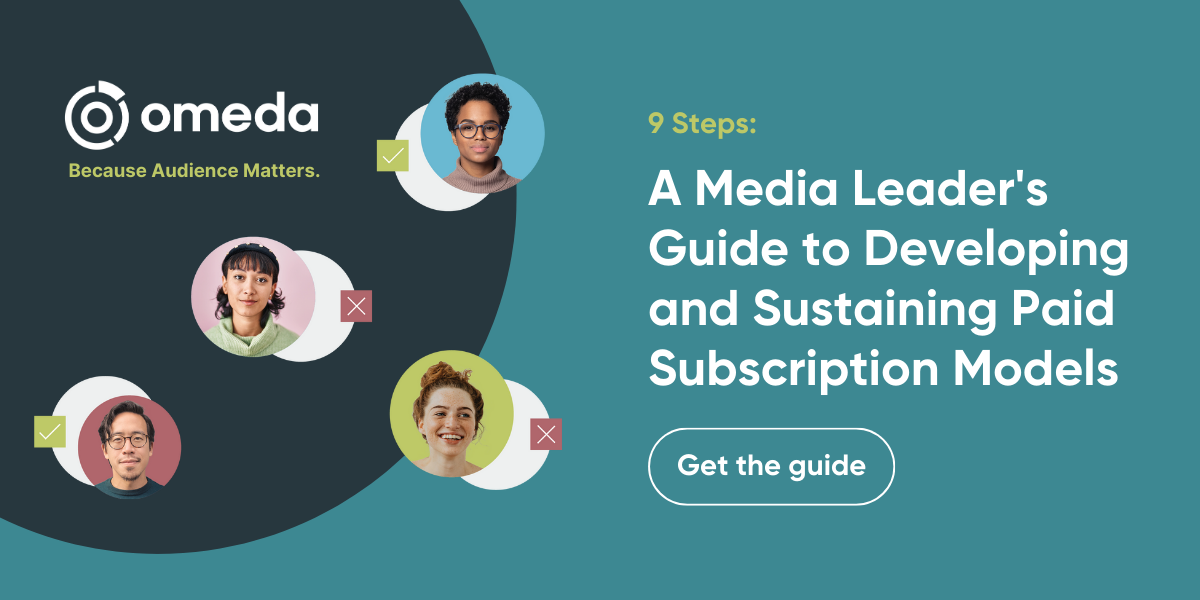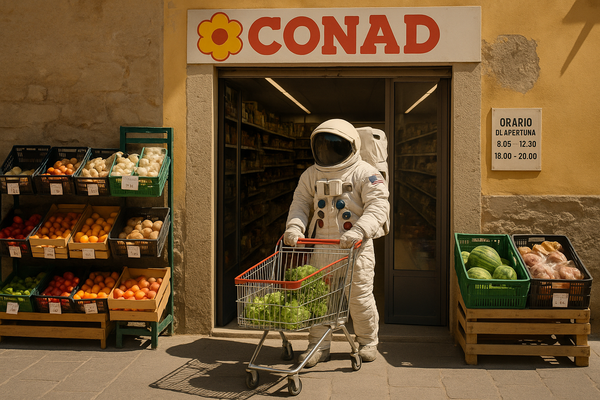Organic brands
A conversation with Impact Alpha founder David Bank
I’m wrapping up a week in Sicily. Italians live an average of six years longer than Americans despite the US spending quadruple in health care per person. The diet, yes. Waking, sure. The other piece is social connection, both family and friends. Italians are often found in groups. GDP growth doesn’t capture this.
Today: A conversation with David Blank on building Impact Alpha; a liberal version of The Free Press; and AI’s brand problem.

Turning your audience into paying subscribers? This is the way.

Making the leap from free to paid subscriptions is one of the biggest—and most rewarding—decisions your media company can make. It’s not just a revenue shift; it’s a game-changer for how you engage and grow your audience. Get proven strategies, real-world examples, and best practices from successful media companies that have made the transition. Download the 9-step guide and start developing and growing your paid subscription model today!
Organic brands
The panic over deep fakes didn’t quite happen. Most are jokes and memes, not societal threats. Instead, we have pervasive doubts about how real things truly are. I still don’t know if the “backlash” against the Sydney Sweeney jeans ad was real. And maybe it was synthetic only to become real, as the algorithms did their thing and incited reaction. This is not going to improve.
That’s why I believe in what I call “real media,” which are brands that arise organically rather than be engineered. I find in the creator world there is a focus on “picking the right niche.” And while there are examples of engineered media that arose from market research, the better approach, particularly in a media environment that’s nearly entirely synthetic, is to build an organic brand that arose from hands-on experience.
David Blank was a reporter at The Wall Street Journal covering tech during the dot-com boom. He began to cover the philanthropy beat and became fascinated by marrying wealth creation worth social change. In 2007, he left the Journal to try his hand at starting a social impact fund at a nonprofit. He eventually found his way back to journalism by immersing himself in the growing sector of social impact investing.
“I assigned myself to this idea that private capital could be redirected to the common good,” he told me in The Rebooting Show.
Impact Alpha was born in 2014 from that instinct. He was essentially reporting on a community and then built a publication around it.
David and I discussed bootstrapping Impact Alpha, experimenting with sponsorships before shifting to subscriptions, resisting acquisition offers, and ultimately raising money from mission-aligned investors. I liked how he described the brand as the “hometown paper” for impact investing.
The liberal Free Press
The left is getting its own version of The Free Press. The Argument is launching as an unabashed liberal project with an approach that’s nearly identical to The Free Press. It has a star founder in Jerusalem Demsas from The Atlantic, a manifesto to redefine liberalism in a modern context, funding from ideologically aligned backers, a roster of independent voices, and a Substack + podcast (including video) product, with live events coming.
From a brand perspective, the embrace of liberal is interesting but also confusing because Americans use the term in strange ways. The Economist is a liberal publication. What Jeff Bezos wants The Washington Post’s opinion section to embrace classical liberalism. I was struck how Demsas is avoiding “progressive” as a descriptor, which is a sign of how successful Trump has been in positioning progressivism as a bunch of weirdos — and hanging this very effectively on the Democratic Party as obsessed with fringe issues and disconnected from the issues most people care about.
One sign of the times is Demas framing The Argument as unabashedly optimistic rather than simply oppositional. Her opening piece tries to unpack a redefinition of liberalism. This is a tough lane in our current politics. The Dispatch has tried mightily to occupy this lane on the center right. Maybe The Argument can do the same for the Abundance Left. It is taking a big tent approach, promising dissenting views rather than doctrinaire lectures. I don't think you can build a brand otherwise these days.
The Argument is also attempting to tap into the network effects of Substack, complementing a core group of four with a roster of contributors from the deep bench of political Substack writers like Derek Thompson, Matt Yglesias, Alice Evans and Matt Bruenig. I’ll be interested to see how it manages this hub-and-spoke network – and figures out the economics. It is banking on subscriptions initially, pricing them in the reasonable range of $80 a year. Paid subscribers get access to polling data, which doesn’t strike me as a massive total addressable market. A quibble: the first subscription benefit listed is “at least five articles a week.” Value is rarely in more content, particularly these days. Better to emphasize value over volume.
I’m a firm believer that new brands need time to figure themselves out. Assessing anything at launch is nearly impossible. Is there a lane in a sea of newsletters and podcasts on politics of every stripe? Sure, if done well. That’s the hard part.
AI’s looming brand problem
Artificial intelligence is being billed in such hyperbolic terms that you’d think it would be far more hotly anticipated. I mean, people would line up overnight for Windows.
But AI is the first tech I can remember that has carried such baggage from inception. Silicon Valley has its own parallel media ecosystem, and they’ve neutered institutional media and decimated its business models, so it’s hard to blame The Media, although David Sacks is up for it.
The problem I see for AI adoption is outside of a small group of people who stand to possibly realize outsized returns, the immediate promises to regular people are in job displacement and growing evidence AI chatbots are social technologies that are at their core manipulative.
This is why it’s ludicrous to believe AI chatbots won’t have ads. Of course they will. Reports that people are developing emotional dependencies on chat bots are inevitable, particularly since the UX was designed to be anthropomorphic. Most people can realize they’re talking to a toaster, but not all. Tragic stories will continue.
We are in the midst of another round of Bowling Alone-style handwringing over AI’s role in social isolation, mental health problems and various forms of arrested social development in young people. As always, AI is an accelerant, so self-I treated boosters will hand wave it all away with saying “it’s complicated.”
The biggest skill set to have in this kind of environment is self-control. AI will continue to advance, even if GPT-5 was broadly seen as a dud.
On this week’s PvA, Troy Young and I discuss the implications of synthetic relationships.
Thanks for reading. Send me feedback by hitting reply.
For sponsorship information, see how we work with partners.



